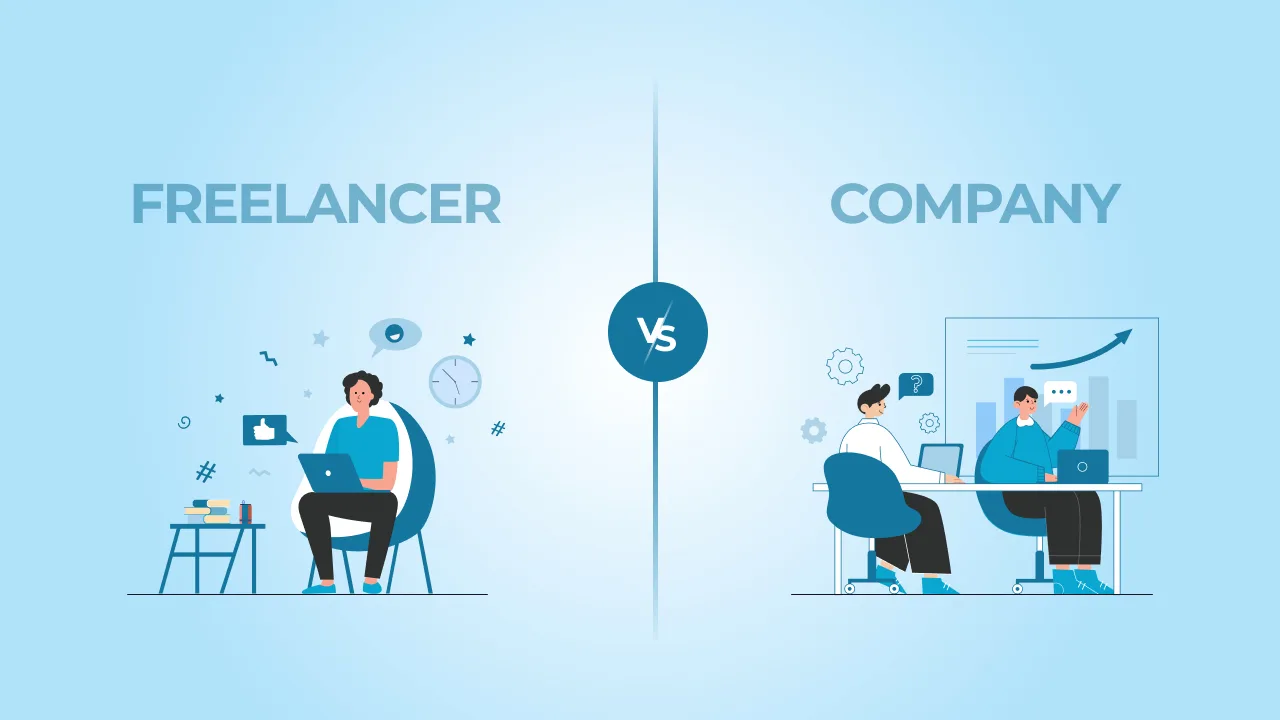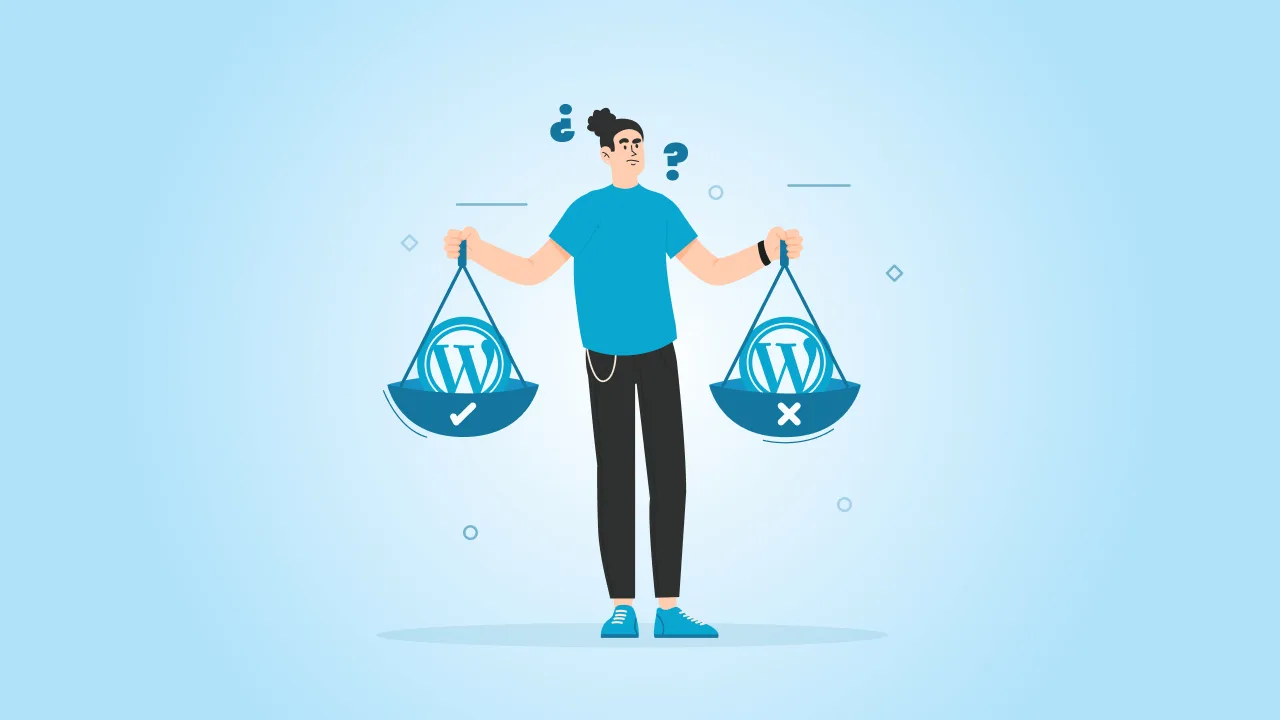WordPress has been the go-too platform for building websites for forever. It powers around 40% of all websites out there, and it’s easy to see why. It’s flexible, beginner-friendly, and has an enormous library of themes and plugins that let you customize your site however you want.
Whether you are setting up a simple blog or a full-blown e-commerce store, WordPress can handle it. Plus, with a huge community of developers and users, if you ever run into an issue, there’s probably a solution out there already.
Having said that, as we move into 2026, people are looking for WordPress alternatives. While WordPress is still a powerhouse, other platforms are stepping up, offering different features, better user experiences, or even more specific tools for certain types of websites.
So, if you are considering switching things up, now might be the perfect time to explore new options.
The Need for WordPress Alternatives
As great as WordPress is, it’s not perfect for everyone—especially as we head into 2026. And, here are some reasons why:
- Scalability: WordPress is a fantastic option for many websites, but it can start to feel slow or cumbersome as it grows more complex. Businesses with heavy traffic or advanced needs often look for platforms that can handle big projects more efficiently.
- Ease of Use: While WordPress is relatively user-friendly, its themes, plugins, and customizations can be overwhelming for beginners. Constant updates, plugin management, and security patches can become a hassle, pushing users toward more intuitive and hands-off solutions.
- Pricing: Although WordPress itself is free, the costs can add up with premium themes, plugins, hosting, and extra services like security. Many are seeking more affordable alternatives that offer everything in one package without the hidden extras.
- Performance: WordPress works for various websites, but it’s not always the best at specific tasks, like running high-performance e-commerce stores or content-heavy sites. Specialized platforms often provide better speed, optimization, and tailored features for certain types of websites.
- Specific Features: While WordPress is versatile, it’s a generalist. Users with very specific needs, like custom design or niche e-commerce features, might benefit from platforms designed specifically for those purposes.
Outgrown WordPress? Time to level up! Explore these top alternatives and let cmsMinds craft a custom solution that fits your goals like a glove. Your next-gen website starts here!
Top 8 WordPress Alternatives for 2026
| Platform | Ease of Use (Rating) | Customization | Pricing | Support | Overall Rating (From Sources) |
|---|---|---|---|---|---|
| Wix | 5 | 3 | Paid | 4 | 4.5/5 (PCMag, Capterra) |
| Squarespace | 5 | 4 | Paid | 4 | 4.4/5 (PCMag, Capterra) |
| Shopify | 4 | 3 | Paid | 4 | 4.6/5 (PCMag, Capterra, TechRadar) |
| Webflow | 3 | 5 | Paid | 3 | 4.3/5 (TechRadar, Capterra) |
| Joomla | 3 | 5 | Free | 3 | 4.1/5 (Capterra) |
| Drupal | 3 | 5 | Free | 3 | 4.2/5 (Capterra, TechRadar) |
| Medium | 5 | 1 | Free | 3 | 4.0/5 (PCMag, Capterra) |
| HubSpot CMS | 3 | 3 | Paid | 4 | 4.5/5 (Capterra, PCMag) |
1. Wix

Wix is a drag-and-drop website builder that has gained popularity for its simplicity and ease of use. It allows users to create stunning websites without needing to write a single line of code. With its intuitive interface, you can simply choose a template, customize it to your liking, and publish your site in a matter of hours. Wix caters to individuals and small businesses, providing everything from personal blogs to small e-commerce solutions.
Key Features:
- Pre-designed Templates: Wix offers hundreds of stylish and professional templates tailored for different industries and purposes.
- Beginner-Friendly Interface: No coding skills are required, making it accessible for complete beginners who want to create a website quickly.
- All-in-One Pricing: Wix packages include hosting, SSL certificates, and domain management in a single, straightforward plan, so there’s no need to juggle multiple services.
- App Market: Access to Wix’s app marketplace allows users to easily add functionality like online booking, social media integration, and contact forms.
- SEO Tools: Basic SEO features are built in, including a step-by-step SEO wizard that helps with optimizing your site for search engines.
Best For:
Small businesses, personal websites, and creatives who need a simple, no-code solution to build a website quickly. Wix is especially appealing for those who prioritize design and visual appeal without needing advanced functionality.
Downsides:
- Limited Flexibility: While Wix offers many customization options, it can feel restrictive for more advanced users who need complete control over their site’s design and functionality. It doesn’t allow access to the underlying code, which can be a limitation for developers.
- Not Ideal for Large Websites: Wix is great for small to medium-sized websites, but it may struggle with scalability as your site or business grows. It’s less suited for large, content-heavy websites or businesses with complex e-commerce needs.
2. Squarespace

An all-in-one website-building platform, Squarespace is known for its sleek, visually stunning designs. It combines simplicity and elegance, offering beautifully crafted templates that are ideal for users who want a polished, professional look right out of the box. Squarespace provides everything from hosting to e-commerce features within its platform, making it a popular choice for creatives and small business owners who prioritize design and ease of use.
Key Features:
- Designer Templates: Squarespace offers a variety of award-winning, modern templates that are fully responsive and optimized for mobile devices. These templates are perfect for showcasing visual content like photography, art, or products.
- Built-in E-commerce Integration: For those looking to sell online, Squarespace offers a powerful yet simple e-commerce solution with features such as inventory management, shipping tools, and the ability to sell physical or digital products.
- Hosting and Security Included: Hosting is included in all plans, along with SSL certificates, ensuring that users don’t need to worry about managing external hosting or website security.
- Built-in Blogging Tools: Squarespace comes with a clean and easy-to-use blogging platform, making it great for writers or content creators.
- SEO and Marketing Tools: It offers built-in SEO tools, social media integration, and email marketing, allowing users to effectively promote their websites without needing external plugins.
Best For:
Artists, photographers, small businesses, and bloggers who need visually striking, minimalist designs without the hassle of managing external hosting or extensive customization. Squarespace is ideal for those who prioritize aesthetics and want an all-in-one solution for their website needs.
Downsides:
- Less Customization: While Squarespace offers beautiful templates, it provides less flexibility for deep customization compared to platforms like WordPress. Advanced users who want to control every element of their site may find it limiting.
- Fewer Plugins or Integrations: Squarespace has fewer third-party plugins or integrations than WordPress, meaning you may miss out on some advanced functionality, especially if your site requires complex or highly specialized features.
3. Shopify

Built specifically for online stores, this platform is known for its e-commerce capabilities. Shopify simplifies the process of launching and managing an online store, offering powerful tools and seamless scalability. From small boutique shops to enterprise-level businesses, it can handle every stage of growth. With its all-in-one approach to hosting, payment processing, and store management, Shopify allows entrepreneurs to focus on selling products, without worrying about technical complexities.
Key Features:
- Robust Inventory Management: Advanced tools help with managing stock, product variants, and automatic order processing, making it ideal for stores with a large number of products.
- Built-in Payment Gateways: Integrated payment solutions like Shopify Payments, along with support for other gateways (e.g., PayPal, Stripe), make transactions easy. Tools for handling taxes, shipping, and multiple currencies are also included.
- Scalability: Whether you’re just starting or expanding a high-traffic store, Shopify can scale effortlessly to accommodate increased demand, making it perfect for businesses looking to grow.
- App Ecosystem: The Shopify App Store provides thousands of integrations and add-ons to extend functionality, covering areas like marketing, social selling, advanced analytics, and more.
- Mobile-Friendly and POS Integration: Shopify’s themes are fully responsive, and they support point-of-sale systems, allowing seamless selling both online and in physical locations.
Best For:
E-commerce businesses, retail stores, and entrepreneurs looking for an efficient and scalable solution to sell products online. It’s especially suited for businesses with ambitions to scale or those that require robust inventory and payment features.
Downsides:
- E-commerce Focus: The extensive e-commerce tools can feel unnecessary for users looking to create content-driven or informational websites, where Shopify’s features might be overkill.
- Transaction Fees: Additional fees are charged for using third-party payment gateways, which can increase costs for businesses not using Shopify Payments.
4. Webflow

Merging the ease of a visual website builder with the flexibility of a CMS, Webflow is a top choice for designers and developers seeking more control over their site’s appearance and functionality. Webflow allows users to design, build, and launch fully responsive websites without needing to dive into complex code, while still offering the ability to customize HTML, CSS, and JavaScript when needed. This platform is perfect for those wanting more creative freedom without relying on pre-built templates.
Key Features:
- Design Freedom: Webflow’s powerful visual editor offers pixel-perfect design control, making it ideal for designers who need flexibility beyond drag-and-drop builders like Wix or Squarespace. Users can tweak every element of their site for full customization.
- CMS Functionality: Unlike other builders, Webflow includes a built-in CMS that allows for dynamic content like blogs, portfolios, and product listings. You can easily build complex sites without additional plugins.
- Responsive Design: All designs are fully responsive, ensuring that websites look great on any device without extra adjustments. Webflow automatically generates code for a responsive experience.
- No-Code and Low-Code Capabilities: While you can build a website without any coding knowledge, Webflow also offers access to the underlying code for users who want to push the limits with custom features.
- SEO Tools: Webflow comes with built-in SEO controls, including customizable meta tags, alt texts, and structured data, helping users optimize their websites for search engines from the start.
Best For:
Designers, developers, freelancers, and small businesses who want more control over their website’s design and functionality without the limitations of traditional drag-and-drop website builders.
Downsides:
- Learning Curve: Webflow’s powerful features can be overwhelming for beginners, requiring more time to learn than simpler website builders.
- Pricing: Webflow’s pricing can be higher than basic website builders, particularly if you need CMS functionality or custom code options.
5. Joomla

Joomla is an open-source content management system (CMS) known for its flexibility and scalability. Its modular design allows for easy expansion, making it suitable for a wide range of website development types, from simple blogs to complex corporate portals. Built on a modern MVC architecture, Joomla offers a solid foundation for developers to create custom solutions while maintaining a high level of control over the website’s structure.
Joomla’s core strength lies in its adaptability, making it well-suited for handling more intricate site layouts and extensive content.
Key Features:
- Advanced User Management: Joomla provides a sophisticated user management system with multiple permission levels, making it ideal for websites with multiple contributors or membership-based platforms.
- Built-in Multilingual Support: Unlike many CMS platforms, Joomla offers built-in multilingual functionality, allowing users to manage websites in multiple languages without the need for third-party plugins.
- Extensive Customization: Joomla’s flexibility comes from its extensive selection of templates and extensions. Users can choose from thousands of free and premium themes and extensions to tailor their website’s appearance and functionality.
- Content Management Flexibility: Joomla is great for organizing complex content structures, making it well-suited for larger websites, such as online magazines or corporate sites.
- SEO & Performance Tools: Joomla includes built-in SEO tools like metadata management, SEO-friendly URLs, and site performance optimizations, ensuring websites can rank well and load quickly.
Best For:
Developers, tech-savvy users, and businesses that require more flexibility, advanced user management, or multilingual support for their websites. It’s perfect for those looking for a more powerful alternative to WordPress but without the need to build from scratch.
Downsides:
- Steeper Learning Curve: Joomla’s advanced features and flexibility can make it difficult for beginners or those without technical expertise to use effectively.
- Complex Extension Management: While Joomla offers a large number of extensions, finding, managing, and updating them can be more complicated compared to simpler platforms like WordPress.
6. Drupal

Drupal is a highly customizable and robust open-source CMS built to manage large, complex websites. Renowned for its scalability, security, and flexibility, it’s often the platform of choice for enterprise-level projects, government portals, and organizations requiring advanced content management and the ability to handle heavy traffic. Drupal’s architecture supports intricate website designs, enabling the creation of custom workflows and highly tailored user experiences. Its modular system provides extensive control over every aspect of a site, making it an ideal platform for managing vast amounts of content while maintaining performance and security.
Key Features:
- High Scalability: Drupal is capable of handling high-traffic websites with thousands of pages and complex content structures. It’s perfect for large organizations that expect rapid growth and need a system that scales easily.
- Robust Security: Drupal is known for its strong security features, making it the preferred CMS for governments and large organizations that prioritize data protection. It regularly undergoes thorough security audits and provides timely security updates.
- Customizable Content Types and Taxonomies: Drupal allows users to create custom content types, views, and taxonomies, offering unmatched flexibility for managing diverse content and complex workflows.
- Multisite Capability: Drupal supports multisite setups, allowing users to manage multiple websites from a single installation. This feature is ideal for enterprises with a global presence or organizations managing several sub-brands.
- Extensive Module Library: Drupal’s module ecosystem offers a wide range of tools to extend functionality, covering everything from advanced SEO tools to social media integrations and e-commerce capabilities.
Best For:
Enterprises, government organizations, and large corporations that need a highly scalable and secure platform to manage extensive content, traffic, or complex website structures. It’s ideal for users with access to development teams or technical expertise.
Downsides:
- Steep Learning Curve: Drupal’s flexibility and advanced features require a higher level of technical expertise in Drupal compared to platforms like WordPress or Wix. Non-technical users may find it challenging without professional help.
- Resource-Intensive: Drupal can be more resource-intensive and requires skilled developers to maintain, update, and optimize, which may increase costs for smaller organizations.
7. Medium

Medium is a streamlined platform designed for writers and bloggers, offering a simple, elegant environment that puts content front and center. With its clean interface and focus on storytelling, Medium eliminates the need for users to worry about design, hosting, or technical management. It provides a built-in audience, making it easier for writers to gain visibility and connect with readers, allowing them to focus solely on their craft.
Medium also encourages community engagement, where users can interact with readers through claps, comments, and shares. Its monetization feature, through the Partner Program, allows writers to earn income based on reader interaction, providing a way to benefit financially without the need for ads or external plugins.
Key Features:
- Focused Writing Environment: Medium offers a distraction-free platform that allows writers to concentrate purely on content creation, without worrying about technical complexities.
- Built-in Audience: The platform provides access to a vast, engaged readership, helping writers gain exposure and build a following without additional marketing efforts.
- Monetization: Writers can earn revenue through the Medium Partner Program, which pays based on engagement metrics like reading time and claps.
- Engaged Community: Medium fosters an interactive space where writers and readers can connect through responses, comments, and social sharing.
- No Technical Management: With Medium handling all hosting and technical maintenance, users can focus entirely on creating content.
Best For: Writers, bloggers, and content creators who want to share their work with a large audience without the need for technical setup or design control.
Downsides:
- Limited Customization: Medium doesn’t offer much in terms of design flexibility, making it less suitable for those who want complete control over their website’s appearance.
- Platform Control: Since Medium is a centralized platform, writers are subject to its policies and changes, limiting control over content distribution and presentation.
8. HubSpot CMS

Designed to seamlessly integrate marketing and customer relationship management (CRM) efforts, HubSpot CMS offers a comprehensive platform for managing websites and aligning them with broader inbound marketing strategies. It centralizes essential tools such as content creation, lead generation, SEO, and analytics, making it a powerful choice for businesses looking to streamline their digital marketing efforts.
HubSpot CMS provides a user-friendly interface that enables marketers to manage and build websites without relying heavily on developers. Its ability to personalize content for visitors based on behavior adds a dynamic touch to the user experience, helping drive engagement and conversions.
Key Features:
- Integrated Marketing Tools: The platform includes built-in features for blogging, SEO, social media, and email marketing, creating a unified marketing solution.
- CRM Integration: Fully integrates with HubSpot’s CRM, allowing businesses to capture leads, track customer interactions, and nurture relationships directly from their website.
- Content Personalization: Enables businesses to deliver personalized content based on user behavior and preferences, enhancing the overall user experience.
- Drag-and-Drop Editor: A simple drag-and-drop interface allows users to create and update web pages without needing technical expertise.
- Analytics and Reporting: Provides robust analytics on website performance, user behavior, and traffic sources, helping businesses optimize their marketing strategies.
Best For: Businesses focused on inbound marketing, seeking to align their website with comprehensive marketing and CRM strategies.
Downsides:
- Pricing: The platform may be costly for smaller businesses or those with limited budgets.
- Learning Curve: Mastering all of HubSpot CMS’s features may take time, especially for users unfamiliar with its advanced capabilities.
How to Choose the Right WordPress Alternative?
Choosing the right WordPress alternative depends on your specific needs, goals, and technical expertise. Here are some key factors to consider when deciding on the best alternative for your website:
1. Purpose of Your Website
- Blogging: If you are primarily focused on writing and content, platforms like Medium offer clean, simple interfaces designed for writers.
- E-commerce: For online stores, alternatives like Shopify or Squarespace provide built-in e-commerce tools that are easy to manage.
- Portfolio/Creative Work: If your site is image-heavy or creative-focused, builders like Wix or Squarespace offer visually stunning templates designed to showcase work.
- Business Websites: For businesses looking to align their website with marketing, platforms like HubSpot CMS or Weebly offer integrated marketing and CRM features.
2. Customization and Flexibility
- High Customization: If you need a platform that allows deep customization, Joomla and Drupal are powerful alternatives with a high degree of flexibility.
- Ease of Use: If ease of use is a priority and you don’t require a lot of customization, Squarespace or Wix might be better suited for you, offering simple drag-and-drop interfaces.
3. Technical Skill Level
- Beginner-Friendly: Platforms like Squarespace and Wix are ideal for beginners who want to build and manage their sites without needing to code.
- Advanced Users: If you are a developer or someone comfortable with technical aspects, Drupal and Joomla provide much greater control over website structure and functionality.
4. SEO and Marketing Tools
- Built-in SEO Tools: Platforms like Webflow, HubSpot CMS, and Squarespace come with built-in SEO tools to help your site rank better in search engines.
- Marketing Integration: If you need a platform that integrates marketing tools such as email campaigns, social media, and lead generation, HubSpot CMS or Shopify are strong contenders.
5. Budget
- Free and Open Source: Platforms like Joomla and Drupal are open-source and free to use, though you may need to pay for hosting, themes, and plugins.
- All-in-One Paid Platforms: For those preferring an all-in-one solution, Squarespace, Wix, or Shopify offer monthly subscription plans that include hosting, security, and customer support.
6. Scalability
- Small to Medium Sites: If you’re building a personal blog or a small business site, Wix or Weebly may be sufficient.
- Large and Complex Sites: For large industries like enterprise websites or those handling heavy traffic, Drupal, HubSpot CMS, and Joomla offer scalability to accommodate growing needs.
7. Support and Community
- Customer Support: If you value having strong customer support, platforms like Squarespace, Weebly, and HubSpot CMS provide 24/7 assistance.
- Community and Resources: Open-source platforms like Joomla and Drupal have large, active communities where you can find plugins, extensions, and forums for troubleshooting.
8. Content Ownership and Control
- Platform-Hosted: Platforms like Medium and Wix handle hosting but may have limitations in terms of content control and customization.
- Self-Hosted: Solutions like Joomla and Drupal offer full control over your content and site, giving you ownership over hosting and functionality.
By assessing these factors—purpose, customization, skill level, budget, scalability, support, and control—you can choose the WordPress alternative that best aligns with your goals and technical capabilities.
Final Thoughts
In exploring the top 8 WordPress alternatives, it’s clear that each platform brings something unique to the table, catering to a diverse range of needs. Whether you are focused on simplicity, creative freedom, e-commerce, or advanced functionality, there’s a platform that can support your vision. The key to making the right choice lies in understanding your goals and selecting the platform that aligns with your long-term vision. With so many powerful options available in 2026, finding the perfect fit for your website has never been easier.
Not sure which CMS is right for you? Our team at cmsMinds specializes in custom website development tailored to your business needs. Get in touch now and discover how we can help you choose the ideal platform for your success!





